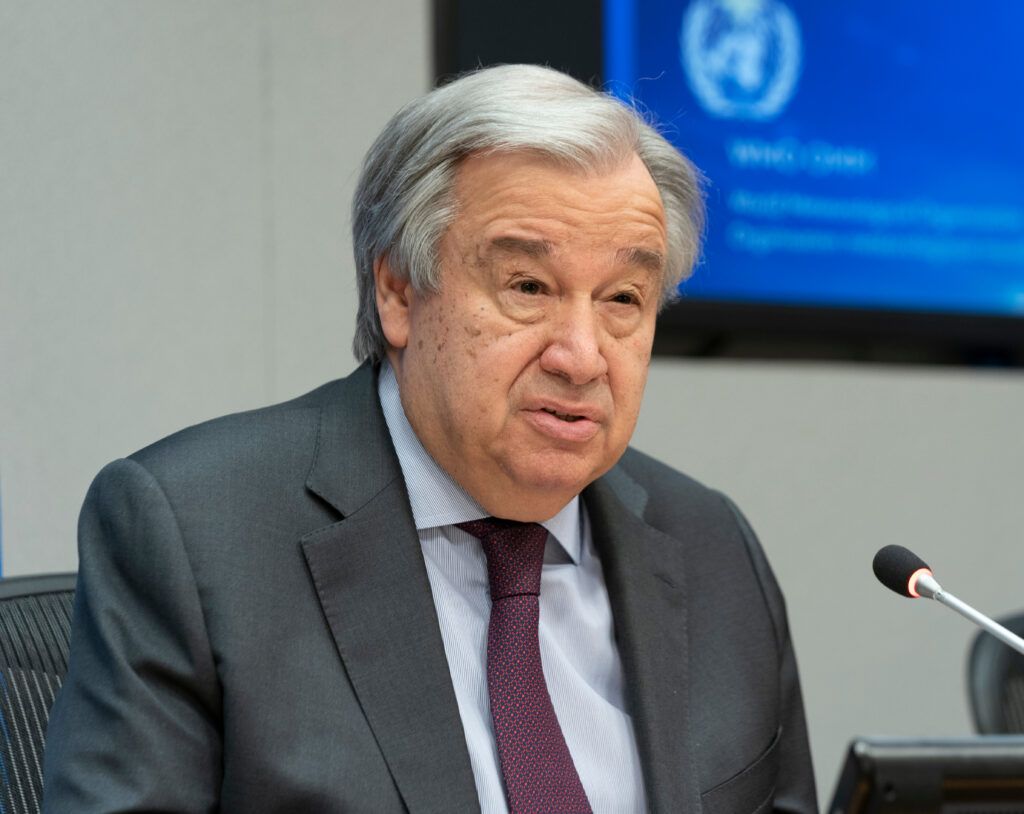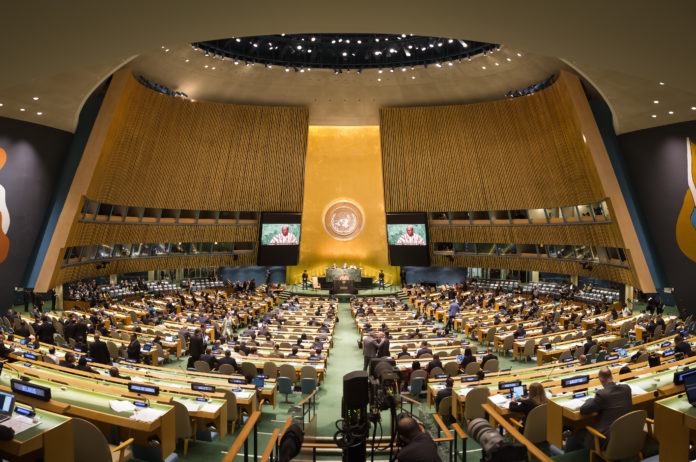The United Nations has commemorated the first-ever International Day to Combat Islamophobia with a special event in the General Assembly Hall, where speakers upheld the need for concrete action in the face of rising hatred, discrimination and violence against Muslims.
The event follows the unanimous adoption of an Assembly resolution last year that proclaimed March 15 as the International Day, calling for global dialogue that promotes tolerance, peace and respect for human rights and religious diversity.
UN Secretary-General António Guterres said the nearly two billion Muslims worldwide “reflect humanity in all its magnificent diversity,” yet they often face bigotry and prejudice simply because of their faith.
He aded that Muslim women can also suffer “triple discrimination” because of their gender, ethnicity, and faith.
The UN event was co-convened by Pakistan, whose Foreign Minister, Bilawal Bhutto Zardari, underlined that Islam is a religion of peace, tolerance and pluralism. Although Islamophobia is not new, he said it is “a sad reality of our times” that is only increasing and spreading.
“Since the tragedy of 9/11, animosity and institutional suspicion of Muslims and Islam across the world have only escalated to epidemic proportions. A narrative has been developed and peddled which associates Muslim communities and their religion with violence and danger,” said Zardari, who is also Chair of the Organisation of Islamic Cooperation (OIC) Council of Foreign Ministers.
“This Islamophobic narrative is not just confined to extremist, marginal propaganda, but regrettably has found acceptance by sections of mainstream media, academia, policymakers and state machinery,” he added.
Subscribe to our newsletter and stay updated on the latest news and updates from around the Muslim world!
The President of the UN General Assembly, Csaba Kőrösi, noted that Islamophobia is rooted in xenophobia, or the fear of strangers, which is reflected in discriminatory practices, travel bans, hate speech, bullying and targeting of other people.
He urged countries to uphold freedom of religion or belief, which is guaranteed under the International Covenant on Civil and Political Rights.
“All of us carry a responsibility to challenge Islamophobia or any similar phenomenon, to call out injustice and condemn discrimination based on religion or belief – or the lack of them,” he added.
Mr. Kőrösi said education is key to learning why these phobias exist, and it can be “transformative” in changing how people understand each another.
Hatred on the rise
The growing hate that Muslims face is not an isolated development, UN Secretary-General António Guterres told attendees.
“It is an inexorable part of the resurgence of ethno-nationalism, neo-Nazi white supremacist ideologies, and violence targeting vulnerable populations including Muslims, Jews, some minority Christian communities and others,” he said.
“Discrimination diminishes us all. And it is incumbent on all of us to stand up against it. We must never be bystanders to bigotry.”
Stressing that “we must strengthen our defences,” Mr. Guterres highlighted UN measures such as a Plan of Action to Safeguard Religious Sites. He also called for ramping up political, cultural, and economic investments in social cohesion.
“And we must confront bigotry wherever and whenever it rears its ugly head. This includes working to tackle the hate that spreads like wildfire across the internet,” he added.
To this end, the UN is working with governments, regulators, technology companies and the media “to set up guardrails, and enforce them.”
Meanwhile, an international coalition of Muslim advocacy organisations issued a joint declaration commemorating March 15th, the first UN-recognised International Day to Combat Islamophobia, and announcing their intent to cooperate in the global struggle against anti-Muslim bigotry.

The joint declaration, the first ever issued by Muslim civic organisations around the world, was signed by Muslim organisations active in over 30 different countries, including Australia, Belgium, France, Spain, the United Kingdom and the United States.
They made the following joint calls to action:
- Nations should recognise the UN International Day to Combat Islamophobia
- Muslim-majority nations should challenge Islamophobia internationally
- All governments should protect places of worship from hate crimes
- Political leaders should engage with their Muslim constituents
- Communities should build bridges with neighbors of different faiths
The groups endorsing the statement are:
Asociación Musulmana por los Derechos Humanos (AMDEH) (Spain)
Australian Federation of Islamic Councils (Australia)
Comité Justice & Libertés Pour Tous (France)
Council on American-Islamic Relations (CAIR) (United States)
Forum of European Muslim Youth and Student Organisations – FEMYSO (Europe) Islamophobia Studies Center (USA)
Islamophobia Research and Documentation Project (USA)
International Islamophobia Studies and Research Association (multiple nations) Islamophobia Studies Journal (multiple nations)
The March 15 Forum – Combating Islamophobia (USA)
MPower Change (USA)
Muslim Council of Britain (MCB) (United Kingdom)
US Council of Muslim Organizations (USCMO) (USA).
The following organizations expressed support for the statement: The Collective for Countering Islamophobia in Europe (CCIE) (Europe) and the National Partnership for New Americans (NPNA) (USA)



















